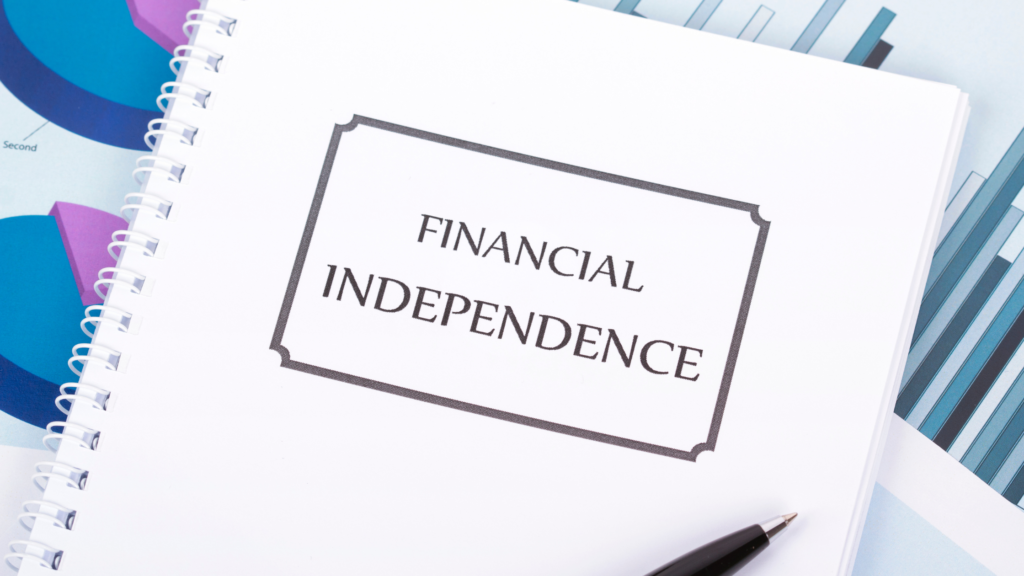Introduction: When Stress Meets Money
I remember a couple I worked with—a software engineer and a school teacher—who lived in Bengaluru. On paper, they were doing well. A combined income of ₹30 lakhs annually, their own 2-BHK flat, and no major liabilities. But when they sat in front of me, there was a thick tension between them. The husband had started feeling a tightness in his chest every time they discussed money. The wife had begun avoiding these conversations altogether.
They weren’t facing a financial crisis—they were facing a mindfulness crisis. And this is more common than we realise.
Financial stress isn’t always about a lack of money. It’s often about the noise inside our heads—the guilt, anxiety, doubt, and overthinking that clouds our judgment. Over the years, I’ve realised that what we really need is money mindfulness.
Let me walk you through ten key lessons that have helped not just this couple, but hundreds of Indian families I’ve coached across Gurugram, Pune, Chennai, and beyond, to reduce their financial stress dramatically—by first calming the chaos within.
1. The Power of Being Present with Your Money

When I ask my clients how often they check their bank apps, they smile sheepishly. “Five times a day?” one young marketing executive confessed. But being hyper-aware isn’t the same as being mindful. True money mindfulness begins with presence—checking in not just with your balance, but with your beliefs.
Mindfulness taught me to help clients pause, breathe, and sit with their numbers without judgment. I now tell couples: don’t budget in a rush. Light a candle. Breathe for two minutes. Begin your money talk with gratitude. It changes the energy entirely.
2. It’s Okay to Be Skeptical
I used to roll my eyes when someone mentioned “money meditation.” I thought, “How can breathing change my bank balance?” One retired Army officer from Lucknow I coached had the same reaction.
But we agreed to try something together—ten minutes of mindful silence before each money decision. He later called it “the best filter I ever installed in my life.” His impulse to buy insurance from pushy agents dropped, and he began reading documents calmly.
It’s okay to start with disbelief—as long as you start.
3. Listening to the Voice in Your Head

We all have that nagging voice. “You’re bad with money.” “You should’ve saved more.” “You’ll never be financially free.” One Gurgaon-based entrepreneur I work with called it her “budget bully.”
The key is to notice the voice, name it, and then gently disarm it. I encouraged her to write down every harsh thought she had about her money habits—and we laughed reading it aloud. That simple act transformed her stress into self-awareness.
4. Meditation Is Not Spiritual—It’s Strategic
A young CA I coached in Delhi was constantly multitasking—markets, clients, compliance. He came to me not for tax planning, but because he “couldn’t breathe.”
Together, we tried breath-counting meditation for five minutes daily before his workday. His clarity improved. His decisions slowed. His productivity grew. Meditation isn’t about chanting. It’s about upgrading your brain’s decision-making engine.
5. Don’t Chase Bliss—Chase 10% Better
I often tell clients: “We’re not aiming for financial nirvana. Just 10% more peace.”
Like the Noida couple who argued about groceries—they began practicing mindful spending. They kept a small diary, noting down only their emotional reactions to purchases. Within a month, they said their fights dropped by—exactly—10%.
Perfection is overrated. Progress is everything.
6. Breaking the Stigma Around Financial Vulnerability

One senior executive from Mumbai told me, “My peers will laugh if I say I need money coaching.” I smiled and said, “Do they laugh when you hire a personal trainer?” He signed up.
Money conversations carry shame in Indian households. But when I hosted group workshops for women in Jaipur, what started as awkward whispers ended in teary laughter. Vulnerability doesn’t make you weak. It makes you free.
7. Science Backs It, So Should You
This isn’t mumbo jumbo. Numerous Indian studies, including those by AIIMS and IIMs, now confirm that meditation reduces cortisol, improves sleep, and enhances clarity. When your mind is calm, your SIP decisions are better. Your insurance planning is sharper.
In my Richness Academy workshops, we open sessions with 3 minutes of guided breathwork. Even skeptical CFOs admit—“I think I’ll continue this at home.”
Also read: How to Attract More Money and Achieve Financial Freedom with a Powerful Mindset
8. Mindfulness Isn’t a Session—It’s a Way of Living
A client couple in Chennai began brushing their teeth mindfully. Yes—just that. No phones, no rush. That one shift led to slower breakfasts, calmer conversations, and eventually… mindful budgeting sessions every Sunday morning.
You don’t need to sit cross-legged to be mindful. Stir your chai with awareness. Count your expenses with gratitude. This is money mindfulness in action.
9. Stress and Anxiety Are Clues—Not Curses

Financial stress is not your enemy. It’s your signal. A young architect from Jaipur came to me feeling “money stuck.” We traced it back to her father’s bankruptcy in 2008.
She had never healed from it. We didn’t jump into SIPs. We worked on inner safety first—with journaling, affirmations, and clarity meditations.
Today, her investments are not just stable—they’re joyful.
10. Your Financial Growth Is a Lifelong Journey
Even I, a CFP® with decades of experience, continue to learn. Money mindfulness isn’t a one-time fix. It’s a muscle.
One widow in her 60s from Chandigarh told me after her first session, “I wish I had started this in my 30s.” But the very next moment, she added, “But I’m glad I started now.”
There’s no deadline to begin. The only mistake is waiting for the “perfect time.”
Conclusion: Let Your Mind Be Rich First
When I sit across couples who are drowning in financial fear, I don’t start with numbers. I start with silence.
Because financial success in India today is not just about your salary or mutual fund portfolio. It’s about the mind that handles those decisions.
So, pause. Breathe. Begin with 10 minutes a day.
Let mindfulness be your first financial strategy. You might not become a millionaire overnight. But you’ll definitely become a little more peaceful, a little more powerful—and yes, at least 10% happier.
Taresh Bhatia, CFP®
CERTIFIED FINANCIAL PLANNER™
Founder – The Richness Academy
Contact Me Directly:
WhatsApp/Call: Click to Message
Email: taresh@tareshbhatia.com
Explore More Resources:
Website: www.tareshbhatia.com
Read My Blog: blog.tareshbhatia.com
YouTube: @Taresh-Bhatia
Webinar & Tools: www.CoupleFinanceFormula.in
Join my live webinar…
Register FREE now: www.CoupleFinanceFormula.in
The author of this article, Taresh Bhatia, is a Certified Financial Planner® and advocate for female empowerment. For more information and personalized financial guidance, please contact taresh@tareshbhatia.com
He has authored an Amazon best seller-“The Richness Principles”. He is the Coach and founder of The Richness Academy, an online coaching courses forum. This article serves educational purposes only and does not constitute financial advice. Consultation with a qualified financial professional is recommended before making any investment decisions. An educational purpose article only and not any advice whatsoever.
©️2025: All Rights Reserved. Taresh Bhatia. Certified Financial Planner®
Subscribe Now for Upcoming Blogs!
[convertkit form=6555951]
📢 Join free live webinar —
Couple Finance Formula™ Register here




